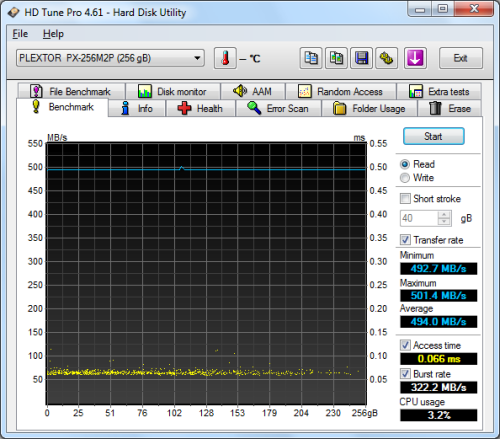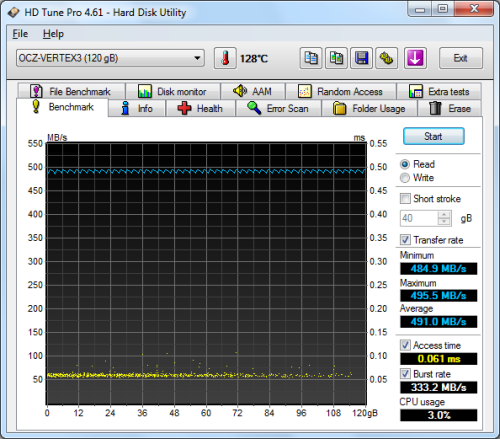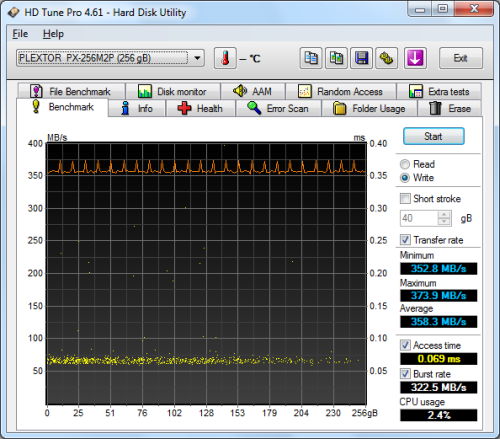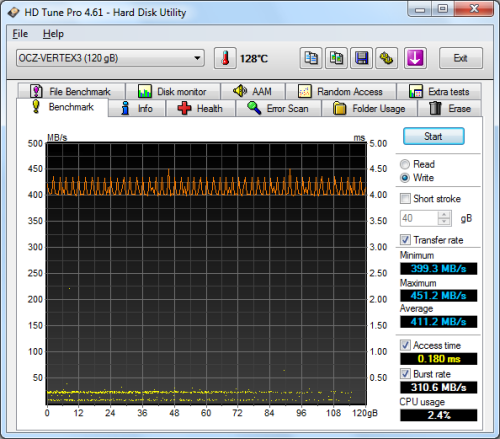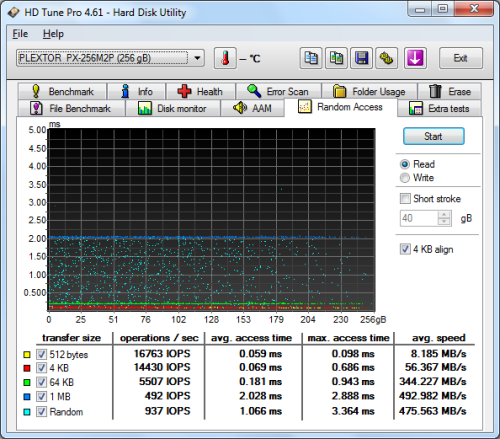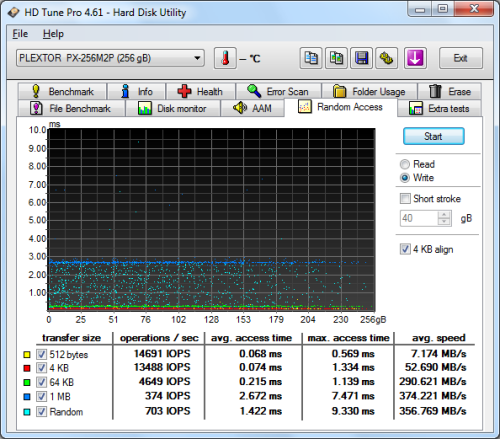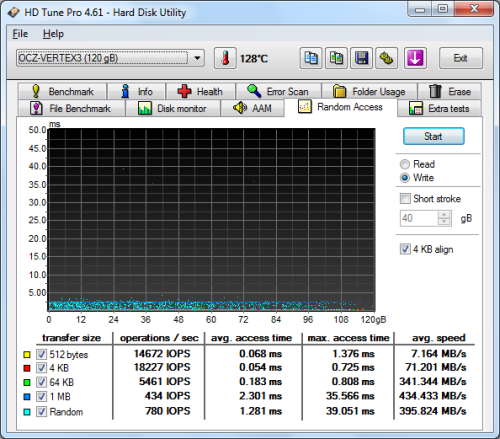AS SSD:
AS SSD is a relatively new benchmark designed specifically for solid state drives. The application contains five synthetic tests used to determine the sequential and random read and write performance of a drive.
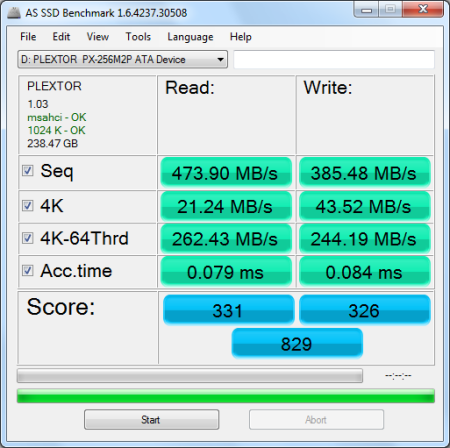
AS SSD also includes a copy benchmark. This test copies an ISO (two large files), program (many small files) and game (small and large files), returning the speed and duration of each.
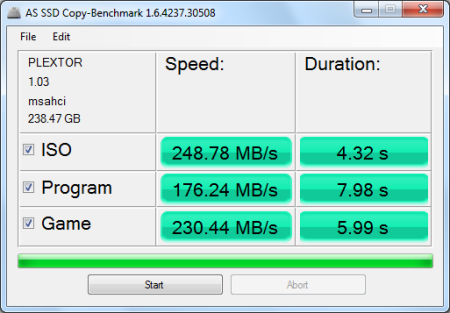
HD Tune Pro 4.61:
Next, I ran a series of tests using HD Tune Pro. This hard disk utility measures a drive's performance by testing its sequential read and write speeds as well as its access time, burst rate and CPU usage. For this review, I'm also going to use it to benchmark the PX-256M2P's random read and write speeds, random access times and the number of operations per second.
The PX-256M2P performed fairly well when benchmarked with HD Tune. The drive had average read and write speeds of 494.0 MB/s and 358.3 MB/s, respectively, and a burst rate of 322 MB/s.
The PX-256M2P didn't perform as well as the Vertex 3 when doing random reads and writes. Nevertheless, when writing 4KB blocks, the drive reached 13488 IOPS and had an average speed of 52.690 MB/s.
Iometer:
Lastly, I ran a series of tests using Iometer. This tool can be configured to benchmark a number of things. In this case, I used it to measure the PX-256M2P's read and write speeds and the number of operations per second. The tests were run using random bytes and a queue depth of 3.

The PX-256M2P's performance was very similar to what we saw in our other tests. The drive was able to read at 482.61 MB/s and write at 401.49 MB/s. This wasn't enough to top the SandForce-based drives when reading and writing highly compressible, repeating data. However, the PX-256M2P had a clear advantage when writing incompressible, random data.

The PX-256M2P performed surprisingly well when doing random reads and writes. In our tests, the drive was able to write at 200.21 MB/s and read at a blazing 120.02 MB/s. Once again, this wasn't enough to top the SandForce-based drives when doing random writes with highly compressible, repeating data. However, the PX-256M2P was about 45 MB/s faster than the Kingston HyperX and OCZ Vertex 3 when writing random data.
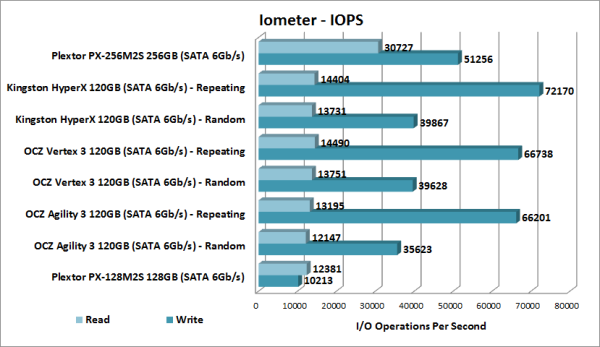
According to Plextor, the PX-256M2P is capable of 70,000 IOPS when reading and 65,000 IOPS when writing 4K blocks. In our tests, the drive reached 30,727 IOPS when doing a random read and 51,256 IOPS when doing a random write.


